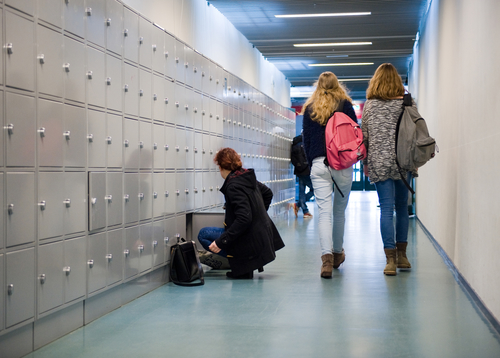School inspectors warn of rising inequality in education

There is an ‘unacceptable’ inequality in Dutch secondary schools and the children of well-educated parents are scoring better in final exams than children of equal intelligence from more disadvantaged backgrounds, according to a new report by education ministry inspectors.
The inspectors’ findings, published in their annual report, echo a similar claim published by Amsterdam city council’s statistics department on Tuesday.
While education in the Netherlands is varied and generally of high quality, not all pupils are able to benefit equally, the inspectors say. For example, well-educated parents are more involved in the choice of school and invest money in tutors, homework classes and training in exam techniques.
Their children are also more likely to be labelled dyslexic or has having adhd, which also entitles them to extra teaching time, the inspectors said.
Shocked
‘I was shocked,‘ chief inspector Monique Vogelzang says in her introduction. Family background, she said, is playing a greater role.
Paul Rosenmoller, who heads the secondary school association VO, described the inspectors’ findings as ‘unacceptable’.
‘Education which is funded by public money should be offering all children equal opportunities,’ he is quoted as saying in the Volkskrant.
Motivation
Education minister Jet Bussemaker said the facts are ‘worrying’. ‘Your talent and motivation should be the reason why you choose your school, not the income or educational level of your parents,’ she said in an online statement.
The development is due to complex factors in which parental choice is just one, the minister said. ‘At an individual level it is easy to understand. Every parent wants what is best for their child. But in terms of society in general, there are undesirable effects.’
The inequality stems partly from how involved parents are in their children’s education, the inspectors say.
Teachers
Teachers also play a role. ‘They often have “unintentionally” higher expectations from children with well-educated parents… and that is crucial at every selection point,’ Vogelzang said.
In the main, Dutch pupils are divided into pre-university (vwo), pre-college (havo) and vocational training (vmbo) streams at the age of 12 but an increasing number of schools only offer one type of education. This means later developers have to change schools in order to move up a stream.
Pupils are placed in a secondary school stream based on their primary school teachers’ opinions and national tests.
Bussemaker has pledged to pay careful attention to the way pre-secondary school selection is working and did not rule out taking ‘steps’ to change the system.
Thank you for donating to DutchNews.nl.
We could not provide the Dutch News service, and keep it free of charge, without the generous support of our readers. Your donations allow us to report on issues you tell us matter, and provide you with a summary of the most important Dutch news each day.
Make a donation